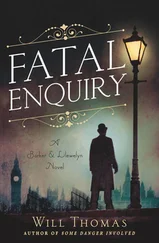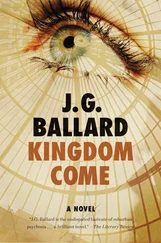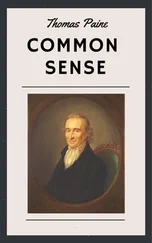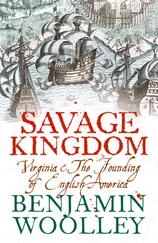Will Thomas - To Kingdom Come
Здесь есть возможность читать онлайн «Will Thomas - To Kingdom Come» весь текст электронной книги совершенно бесплатно (целиком полную версию без сокращений). В некоторых случаях можно слушать аудио, скачать через торрент в формате fb2 и присутствует краткое содержание. Жанр: Исторический детектив, на английском языке. Описание произведения, (предисловие) а так же отзывы посетителей доступны на портале библиотеки ЛибКат.
- Название:To Kingdom Come
- Автор:
- Жанр:
- Год:неизвестен
- ISBN:нет данных
- Рейтинг книги:4 / 5. Голосов: 1
-
Избранное:Добавить в избранное
- Отзывы:
-
Ваша оценка:
- 80
- 1
- 2
- 3
- 4
- 5
To Kingdom Come: краткое содержание, описание и аннотация
Предлагаем к чтению аннотацию, описание, краткое содержание или предисловие (зависит от того, что написал сам автор книги «To Kingdom Come»). Если вы не нашли необходимую информацию о книге — напишите в комментариях, мы постараемся отыскать её.
To Kingdom Come — читать онлайн бесплатно полную книгу (весь текст) целиком
Ниже представлен текст книги, разбитый по страницам. Система сохранения места последней прочитанной страницы, позволяет с удобством читать онлайн бесплатно книгу «To Kingdom Come», без необходимости каждый раз заново искать на чём Вы остановились. Поставьте закладку, и сможете в любой момент перейти на страницу, на которой закончили чтение.
Интервал:
Закладка:
For now, we had more immediate things to worry about. We had one week to dispose of the unstable dynamite and somehow provide new explosives in exchange. I wondered if Barker was really planning to give them better and deadlier bombs. It was just the sort of thing he would do, confident that he could get them away from the terrorists again when the time came.
Barker slept in his spectacles and snored through the night on his back. The next morning, he was rested and refreshed, which was more than I could say of myself. I began to unpack my old pasteboard suitcase, opening a bureau drawer in the room.
“Don’t get too comfortable,” Barker said. “We shall be moving again tomorrow.”
“Again? Where to?” I asked, my hands full of shirts.
“Across the Mersey and into a northern corner of your native Wales. Dunleavy says the dynamite is hidden in a barn near an abandoned lighthouse at Colwyn Bay. It is very remote. I believe we can stage our demonstration there.”
“But if we know where the dynamite is, why don’t we simply inform Scotland Yard? They can’t very well attack London with nothing but those sticks they carry.”
“True, but if these Fenian terrorists are thwarted once, they shall merely come again later and more prepared. I’d have them arrested on the spot if I thought a good barrister couldn’t help them wriggle out of it. They must be caught red-handed.”
I must admit my face fell. I do not have Barker’s manner, and all too often I show what I am feeling.
“Buck up, lad,” my employer said. “I shall insist that we have complete privacy while preparing the explosives. You look as if you could do with a day or two in the country.”
I suspected that meant that when we blew ourselves up, we wouldn’t even have the opportunity to take a few terrorists with us, but I kept my opinion to myself.
“First, we have work to do in Liverpool,” he went on. “We must see what kind of supplies we can gather. We shall be purchasing these items, though Dunleavy promises to reimburse us when the funds arrive from America.”
For the most part, London is a conservative, Anglican city, with dissent saved for unionist organizations, and the Speaker’s Corner of Hyde Park. On the other side of the Irish Sea, Catholic Dublin is a single dissenting voice, unified against England. Liverpool is both at once, oil and water that will never mix. One street has signs imploring one to vote for the most recent Fenian candidate, while the next bristles with Orangist ribands and placards. Liverpool is London’s spinster sister, querulous over issues, passionate but changeable, willing to go whatever way the wind may blow.
Dunleavy had returned to his hotel room, intent upon soliciting aid from one of the local city councilmen. Much of his time seemed to be spent looking for money. I would have thought in such case he might have moved to a less expensive hotel than the Midland, but I supposed in order to secure such funds, one must not look as if one were in need of them.
Miss O’Casey was intent upon ensuring that Cyrus Barker didn’t starve while in Liverpool. She fed us a breakfast consisting of eggs, bacon, sausage, black and white pudding, tomatoes, and toast. Dummolard couldn’t have done any better.
With O’Casey’s aid, my employer had compiled a list of places for us to go. At an ironmonger’s in Hanover Street, we filled several baskets, purchasing spools of wire, a dynamite plunger, buckets and paddles for mixing chemicals, and sundry other equipment. We collected more than was necessary to blow up Dunleavy’s old dynamite.
Before the day was out, we had visited a whitesmith, a chemist’s shop, and a chemical warehouse. I couldn’t help but wonder at how easy it was to purchase such terrible things when one has the means to do so.
14
I believe that it is part of human nature, when one is about to set out upon a journey, to want to know the destination. Few of us in our lives step up onto some random train and leave their arrival to fate, but that is exactly what I was doing. Barker knew, of course, but I would sooner get an answer by speaking directly to the engine which was sputtering and steaming by the platform in Birkenhead Park Station, across the Mersey from Liverpool. It was the ninth of June, 1884, and we had been in the city for three days. We hadn’t been discovered so far, but if we made just one mistake, Barker and I would be occupying two of those pine boxes Mr. Anderson had been so fond of describing. Beneath the casual veneer of the Irish faction members lay the hearts of cold-blooded murderers. Of that I had no doubt.
We had crossed on the ferry, and were now seated in the railway carriage. I like that feeling when the engine is first propelled forward by the steam pressure, and the carriages stretch out one by one at their couplings and creak and groan and squeak, until your own compartment shudders and slowly begins to move and you realize you are beginning a railway journey. At least we might be alone for a few days to puzzle out all the information we’d discovered.
Alfred Dunleavy was escorting us to our new encampment. As usual, he was sitting with Barker and chatting into his ear, discussing everything but revealing nothing. I took a moment to regard him. The man hadn’t spoken more than a few words to me since this mission had begun. That was suspicious in itself, since the success of at least part of the operation came down to me and my abilities. Barker had questioned the man’s leadership, and suggested someone else might be in charge. If not him, then whom? Parnell, keeping his terrorist scheme separate from his political plans? Garrity, running the operation from Paris? Or, closer to home, was O’Casey running the whole thing himself? It was possible, too, that Dunleavy was playing the blustering bureaucrat to cover up a more astute brain than we realized, an old card player’s trick.
I shook my head and looked at Barker, who sat patiently while Dunleavy rambled on. In our last adventure, I’d had occasion to wonder if Barker knew what he was about, which only went to show that it was I who was ignorant. This was Barker doing what he did best. This was Barker being Barker, and reveling in it. The leader and mastermind of this cell could be anyone, but I had no doubt that the Guv would get to the bottom of it.
A little more than an hour’s ride up the coast from Liverpool to Colwyn Bay, the train pulled up beside a small country halt. We alighted and were met by a youth with an open trap. I sat in the seat facing the back of the trap, behind Barker and Dunleavy, along with our boxes of supplies. The colonel had finally run out of things to say. I would have enjoyed the ride had I not been seated next to the explosive materials and over the back axle. As it was, I felt every pebble and pothole during the thirty-minute ride to our destination. The only consolation was that we were not transporting nitroglycerin.
We eventually arrived at a small cottage of cob and thatch, standing beside a boarded-up barn and several outbuildings. They were up against the sea, beside a vacant lighthouse built of Welsh granite. Smoke was rising from the cottage chimney, and it was obvious we were not alone.
“Who is here?” Barker asked suspiciously as we got out of the trap.
“I’ve engaged a housekeeper and cook for your comfort,” Dunleavy explained.
“Bah!” Barker cried, playing the hardened revolutionary. “Send her away! We have no need of comfort. Mr. Penrith and I are accustomed to taking care of ourselves, and we do not believe in servitude. There will come a time, Mr. Dunleavy, when the servant classes shall overthrow their oppressors, and all men and women shall live as equals!”
“Very well,” Dunleavy said, a smile on his hawkish features. While we waited, he got down and went in to speak to the housekeeper. I got the impression the American revolutionary did not share Barker’s views and would very much like a large mansion full of servants. In a few moments, a squat woman came out and got into the trap, clutching a wicker basket in one hand and a jingling kerchief full of coins in the other.
Читать дальшеИнтервал:
Закладка:
Похожие книги на «To Kingdom Come»
Представляем Вашему вниманию похожие книги на «To Kingdom Come» списком для выбора. Мы отобрали схожую по названию и смыслу литературу в надежде предоставить читателям больше вариантов отыскать новые, интересные, ещё непрочитанные произведения.
Обсуждение, отзывы о книге «To Kingdom Come» и просто собственные мнения читателей. Оставьте ваши комментарии, напишите, что Вы думаете о произведении, его смысле или главных героях. Укажите что конкретно понравилось, а что нет, и почему Вы так считаете.












